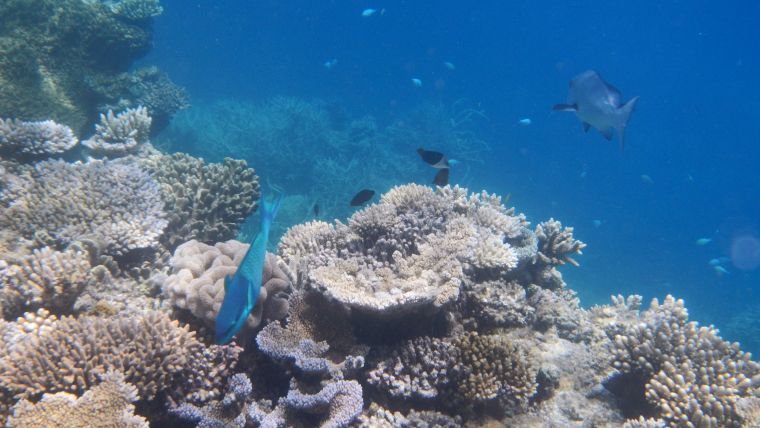Corals Capable of Surviving Extreme Conditions in Mangrove Lagoons
Researchers have discovered corals capable of surviving extreme conditions in mangrove lagoons around Australia's Great Barrier Reef by using a photosynthetic strategy that trades fast growth for survival. Led by Emma Camp from the University of Technology Sydney in Australia, a team of scientists found 34 species of coral that were regularly exposed to extremely low pH, low oxygen levels and highly variable temperatures. The coral resilience was found in two mangrove lagoons, the Woody Isles and Howick Island, according to a study published in the Marine Ecology Progress Series.
Stress Tolerance in Corals
The discovery, the researchers hope, will help scientists gain insight into the response of corals to climate change and other environmental stress. "This highlights the need to study environments that would usually be considered unfavourable to corals in order to understand how stress tolerance in corals works," Camp said. "There is a lot we don't know. For example, are these extreme corals already at their limit, can they survive more stress, if we transplant them to more stable environments will they maintain their stress tolerance?"
Using ecological, physiological and molecular approaches, their study demonstrates how coral physiological plasticity—in part through flexibility in association with different endosymbionts (Symbiodiniaceae)—supports survival in these lagoons. Prevalence of corals within these environmental extremes increasingly challenges our understanding of nature and the extent of coral stress resilience and highlights the need to study such environments to resolve stress-tolerance mechanisms.
About Emma Camp
Emma completed her BSc (Hons) in Environmental Science and Chemistry at Belmont Abbey College in North Carolina, USA (2006). After this, she returned to England to complete her MSc in Environmental Management and Business at Sheffield Hallam University (2011). In 2018, she was announced as one of 17 Young Leaders for the Sustainable Development Goals (SDGs) by the United Nations. This Honorary two-year position will see her work with the United Nations to help catalyze the achievement of the SDG Goals. This year she was recognised by Rolex as an Associate Laureate for her efforts in coral reef research and conservation.
Read the full article at Marine Ecology Progress Series. Photo courtesy Robert Linsdell, St. Andrews, Canada.














